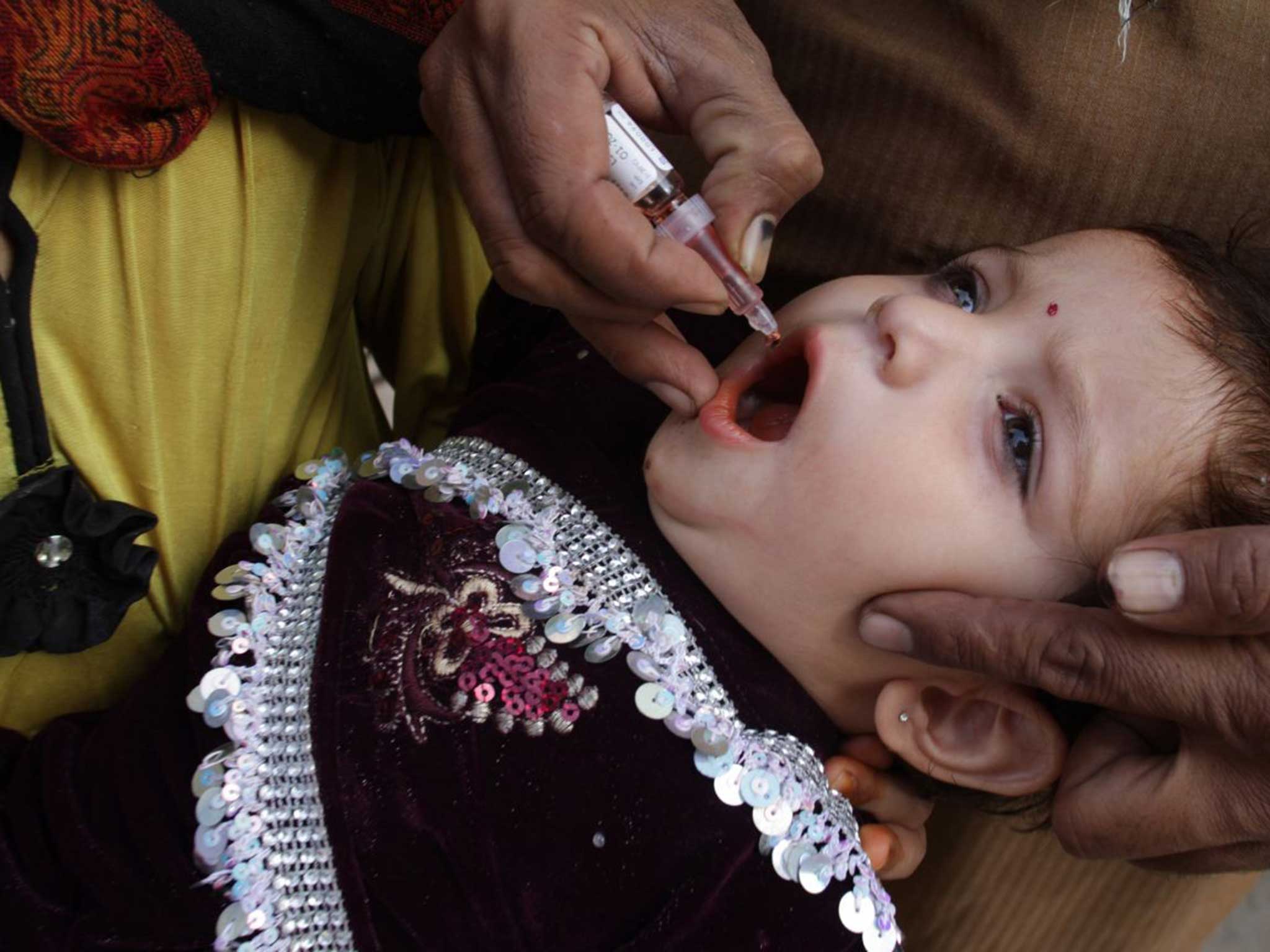Scientists celebrate 'major milestone' towards global eradication of polio
Polio, which mostly affects young children and can cause paralysis and death, is still a danger in parts of the world - notably Pakistan and turbulent regions such as Iraq and Syria

Your support helps us to tell the story
From reproductive rights to climate change to Big Tech, The Independent is on the ground when the story is developing. Whether it's investigating the financials of Elon Musk's pro-Trump PAC or producing our latest documentary, 'The A Word', which shines a light on the American women fighting for reproductive rights, we know how important it is to parse out the facts from the messaging.
At such a critical moment in US history, we need reporters on the ground. Your donation allows us to keep sending journalists to speak to both sides of the story.
The Independent is trusted by Americans across the entire political spectrum. And unlike many other quality news outlets, we choose not to lock Americans out of our reporting and analysis with paywalls. We believe quality journalism should be available to everyone, paid for by those who can afford it.
Your support makes all the difference.A “major milestone” in the global eradication of polio has been reached, according to the US Centres for Diseases.
Its experts think a second of the three forms of poliovirus has been eliminated after mass vaccination campaigns; however, the news comes amid separate reports of new cases in South Sudan and Madagascar, and rising infection numbers in Pakistan.
Wild poliovirus type 3 has not been found for more than two years, while type 2 was eradicated in 1999.
Polio, also referred to as poliomyelitis, is a highly infectious viral disease that generally targets young children. It causes paralysis in one out of 200 people and in the worst cases some children die after when the muscles that allow them to breath stop working.
Dr Stephen Cochi, a senior adviser at the CDC's Centre for Global Health, said: "We may have eradicated a second of three; that's a major milestone".
Although there has been huge progress in eliminating the disease, reported cases have fallen from 350,000 in 1988 to 416 in 2013, in March there were fears that instability in the Middle Eastern region could herald a new outbreak.
A World Health Organisation official described the resurgence of polio as “the most challenging outbreak in the history of polio eradication" after the number of cases in the country reached 38 – and the first case was confirmed across the border in Iraq.
"Seriously damaged health infrastructure, poor health access and utilisation because of insecurity inside Syria, and massive movements of vulnerable and at-risk populations in and out of Syria – all make controlling the outbreak and rendering health protection to Palestine refugees in Syria and across the region very challenging."
The same factors, he added, made it hard to guarantee 100 per cent immunisation coverage and to maintain the cold chain needed to protect vaccines from heat.
Type 1 polio remains endemic in three countries: Pakistan, Afghanistan and Nigeria, although recent progress in the east African country has seen the number of cases fall from 53 in 2013 to six this year.
However, the opposite is true in Pakistan. Cases have risen from 59 last year to 236, according to the latest data from WHO.
The Taliban prevented many children in remote regions receiving vaccinations for roughly two years. Mass movements saw the virus travel from Pakistan to Syria in 2013.
Join our commenting forum
Join thought-provoking conversations, follow other Independent readers and see their replies
Comments